

SAGE has been part of the global academic community since 1965, supporting high quality research and learning that transforms society and our understanding of individuals, groups, and cultures. SAGE is the independent, innovative, natural home for authors, editors and societies who share our commitment and passion for the social sciences.
Find out more at: www.sagepublications.com
Connect, Debate, Engage on Methodspace
 Connect with other researchers and discuss your research interests
Connect with other researchers and discuss your research interests
 Keep up with announcements in the field, for example calls for papers and jobs
Keep up with announcements in the field, for example calls for papers and jobs
 Discover and review resources
Discover and review resources
 Engage with featured content such as key articles, podcasts and videos
Engage with featured content such as key articles, podcasts and videos
 Find out about relevant conferences and events
Find out about relevant conferences and events

www.methodspace.com |  |

Trena Paulus, Jessica Nina Lester and Paul Dempster 2014
First published 2014
Apart from any fair dealing for the purposes of research or private study, or criticism or review, as permitted under the Copyright, Designs and Patents Act, 1988, this publication may be reproduced, stored or transmitted in any form, or by any means, only with the prior permission in writing of the publishers, or in the case of reprographic reproduction, in accordance with the terms of licences issued by the Copyright Licensing Agency. Enquiries concerning reproduction outside those terms should be sent to the publishers.
Library of Congress Control Number: 2013940584
British Library Cataloguing in Publication data
A catalogue record for this book is available from the British Library
ISBN 978-1-4462-5606-0
ISBN 978-1-4462-5607-7 (pbk)

SAGE Publications Ltd
1 Olivers Yard
55 City Road
London EC1Y 1SP
SAGE Publications Inc.
2455 Teller Road
Thousand Oaks, California 91320
SAGE Publications India Pvt Ltd
B 1/I 1 Mohan Cooperative Industrial Area
Mathura Road
New Delhi 110 044
SAGE Publications Asia-Pacific Pte Ltd
3 Church Street
#10-04 Samsung Hub
Singapore 049483
Editor: Katie Metzler
Production editor: Ian Antcliff
Copyeditor: Richard Hutchinson
Proofreader: Kate Harrison
Indexer: Avril Ehrlich
Marketing manager: Ben Griffin-Sherwood
Cover design: Francis Kenney
Typeset by: C&M Digitals (P) Ltd, Chennai, India
Printed in Great Britain by Henry Ling Limited at The Dorset Press, Dorchester, DT1 1HD

Acknowledgements
We would like to thank the following friends, colleagues and students. Without their support, feedback, technical assistance and hard work writing this book would have been a much less enjoyable experience: Ginny Britt, Doug Canfield, Kathy Evans, Richard Lehrer, Debby Lee, Jennifer Lubke, Lisa Scherff, Mary Alice Varga, Alan Wallace and a very special thank you to Jaewoo Do for supporting us throughout the writing process.
Thanks to Susanne Friese, Anne Kuckartz, Marcus Ogden, Julia Schehl and David Woods who contributed vignettes and reviewed sections of the book around the CAQDAS tools.
Thank you to the many vignette writers for sharing their experiences: Carlos Anguiano, Tim Barko, Ron Bridges, Ginny Britt, Christopher Brkich, James Dorough, Hannah Dostal, Kathy Evans, Rachael Gabriel, Carlos Galan-Diaz, Ron Hallett, Art Herbig, Aaron Hess, Teri Holbrook, Craig Howard, Melanie Hundley, Joshua Johnston, Derya Kulavuz-Onal, Chad Lochmiller, Jennifer Lubke, Ray Maietta, Lisa McNeal, Emily Miller, Monique Mitchell, Everett Painter, Jonathan Pettigrew, Anton Reece, Prisca Rodriguez, Lisa Scherff, Rebecca Williams, Lisa Yamagata-Lynch and Fanny Yeung.
Thank you to Katie Metzler and Anna Horvai at SAGE for all their support, guidance and encouragement.
Thanks to the various software companies who have provided support and expertise throughout the book-writing process.
Trena would especially like to thank all of the students in the Digital Tools course at the University of Tennessee for inspiring this book, and David for his understanding and support throughout the process.
Jessica would especially like to thank Chad for his support and encouragement.
Paul would like to thank Jonathon Whitmore at Nuance, Roger Tucker at Audio Notetaker and Lunis at Knowbrainer. Paul is grateful to Tracy, Calvin, John and Joseph for their patience and encouragement.
Companion Website
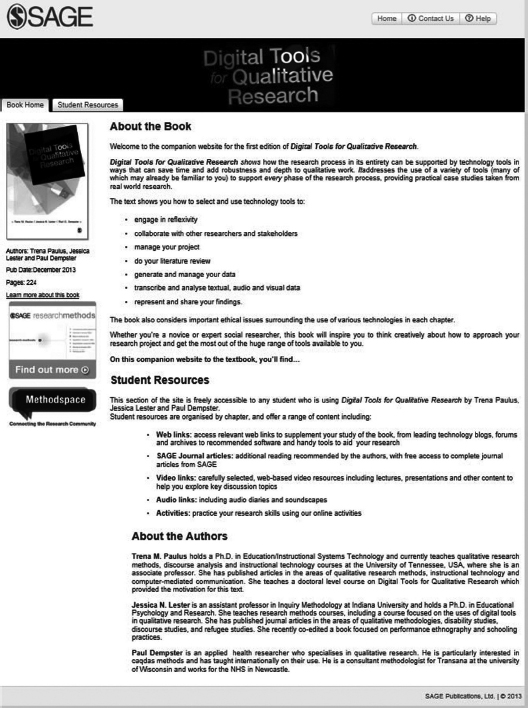
ONE
Why Digital Tools?

Companion website materials available here:
www.uk.sagepub.com/paulus
Learning Objectives
Highlight the historical perspectives around the use of digital tools within the qualitative research process.
Consider how the diffusion of innovation theory might serve to explain technology adoption by the qualitative research community.
Examine the concepts of affordances and constraints as related to digital tools.
Identify the crosscutting themes of the book, including reflexive practice, collaboration, transparency and ethics.
Introduction
From paper and pen for taking notes in the field to tape recorders and video cameras for capturing interviews and social interactions, qualitative research has always been shaped by the tools we choose to use. We now live in a digital age, where cloud computing, mobile devices and social media are constantly changing the nature of our relationships with technology and with each other. We acknowledge that the use of digital tools for qualitative research is not a new idea, nor has it been without controversy. Davidson and Di Gregorio (2011) provided a comprehensive overview of the history of technology in qualitative research, highlighting the uneasiness between the two. Of particular concern has been the use of data analysis software. Paulus, Lester and Britt (2013) noted in their discourse analysis of introductory qualitative research textbooks that most authors limited their discussion of digital tool use to devices such as audio recorders, transcribing machines and data analysis software. Further, many of the texts framed the use of digital tools (especially data analysis software) as something to be done with caution. We feel that this overriding focus on data analysis software, while important, has resulted in the exclusion of a broader discussion regarding the potential affordances and constraints of digital tools
Next page
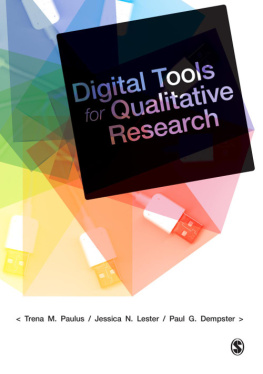
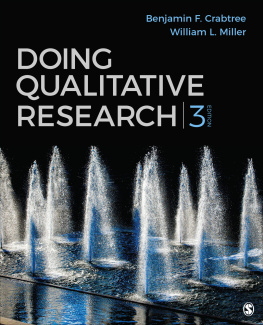
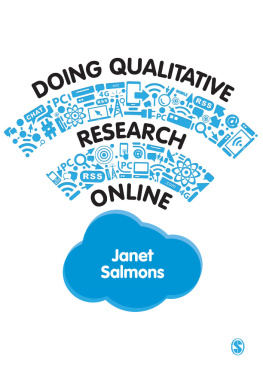




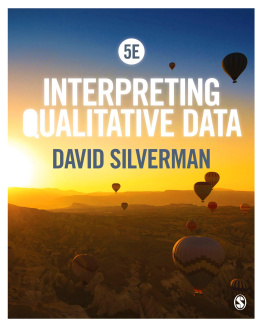



 Connect with other researchers and discuss your research interests
Connect with other researchers and discuss your research interests





